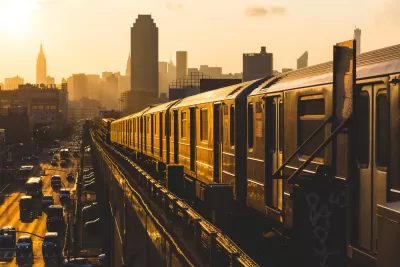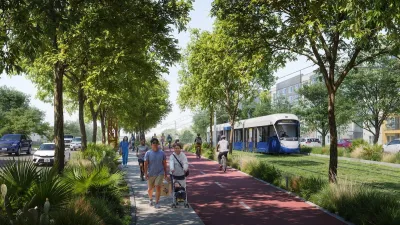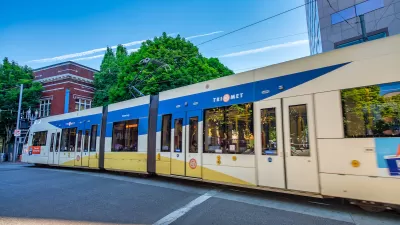While other countries are boosting investment in their light and heavy rail systems, transit projects in U.S. cities have slowed, signaling diminished commitment to transit expansion.

While countries like Canada, Egypt, France, and others are increasing their investment in high-quality public transit, the United States is falling behind, with the kilometers of rail opened declining by roughly 30 percent between the 2000s and 2010s. Yonah Freemark analyzes the data in The Transport Politic.
According to data from the Transit Explorer (which excludes Australia and south and east Asia), the United States currently has the most kilometers of heavy or light metro rail. Freemark points out that about a third of this network is concentrated in the New York region. “But New York actually has fewer active heavy rail lines in service than it did in 1950,” and transit investment in the city and around the country has slowed in recent years. Neither New York or Chicago have plans to expand their systems in the coming years.
Freemark outlines the different efforts taking place around the world to improve transit. Cairo, Istanbul, Paris, and others are actively building new light rail lines, with Paris set to overtake London and New York for most rail kilometers. While U.S. cities like Los Angeles and Seattle have ambitious plans for expanding their transit systems, Freemark writes, “These conditions overall tell a story of declining US commitment to transit expansion in the context of large growth in other countries around the world.”
FULL STORY: Historical Trends Show a Decline in Investment in High–Quality Transit in the US—And an Uptick Elsewhere

Planetizen Federal Action Tracker
A weekly monitor of how Trump’s orders and actions are impacting planners and planning in America.

Map: Where Senate Republicans Want to Sell Your Public Lands
For public land advocates, the Senate Republicans’ proposal to sell millions of acres of public land in the West is “the biggest fight of their careers.”

Restaurant Patios Were a Pandemic Win — Why Were They so Hard to Keep?
Social distancing requirements and changes in travel patterns prompted cities to pilot new uses for street and sidewalk space. Then it got complicated.

Platform Pilsner: Vancouver Transit Agency Releases... a Beer?
TransLink will receive a portion of every sale of the four-pack.

Toronto Weighs Cheaper Transit, Parking Hikes for Major Events
Special event rates would take effect during large festivals, sports games and concerts to ‘discourage driving, manage congestion and free up space for transit.”

Berlin to Consider Car-Free Zone Larger Than Manhattan
The area bound by the 22-mile Ringbahn would still allow 12 uses of a private automobile per year per person, and several other exemptions.
Urban Design for Planners 1: Software Tools
This six-course series explores essential urban design concepts using open source software and equips planners with the tools they need to participate fully in the urban design process.
Planning for Universal Design
Learn the tools for implementing Universal Design in planning regulations.
Heyer Gruel & Associates PA
JM Goldson LLC
Custer County Colorado
City of Camden Redevelopment Agency
City of Astoria
Transportation Research & Education Center (TREC) at Portland State University
Camden Redevelopment Agency
City of Claremont
Municipality of Princeton (NJ)





























